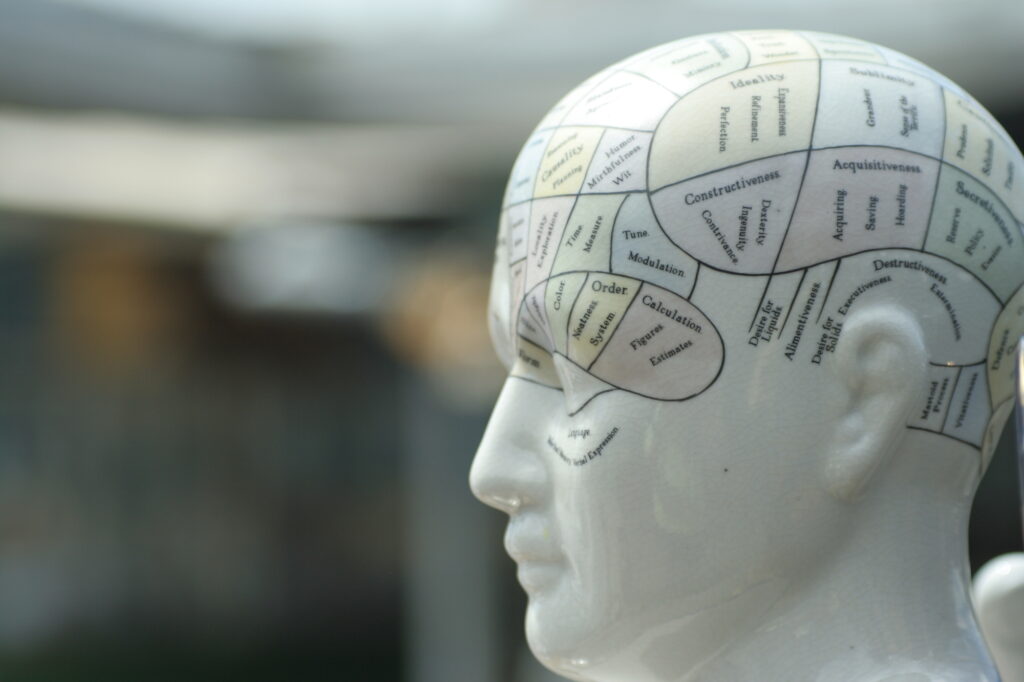A recent review of literature on psychopathology reveals the “blinding effect” of essentialism and reductionism in psychiatric thinking and argues for a relational turn that embraces the dynamic and complex relations that constitute our mental lives.
Annemarie Kohne, a PhD candidate in psychiatry in the University Medical Center Utrecht, argues that the best available method for charting the territory of psychopathology is to focus on the idiosyncratic networks and “multifactorial mechanism” that make up the individual patient’s problems of living.
 Like other recent scholars, including Eiko Fried, Kohne calls for a paradigm shift in psychiatric thinking that will better reflect our current understandings of diagnostic categories as premised on essentialism and reductionism about mental disorders.
Like other recent scholars, including Eiko Fried, Kohne calls for a paradigm shift in psychiatric thinking that will better reflect our current understandings of diagnostic categories as premised on essentialism and reductionism about mental disorders.
Reductionism proposes a hierarchy of factors for understanding the person, with one physiological force being primary. Essentialism, the frame of thought that has fueled such categorical models of psychopathology as the DSM, is premised on the “a priori supposition that psychopathology behaves as categories.”
Critics of psychiatry have pointed out the role of psychiatric categories in legitimating physical, mental, and epistemic violence that has been carried out in the name of psychiatry. Others have stressed that psychiatric categorizations are themselves iatrogenic, racially-biased, epistemically violent, and have been used to justify forced treatment, violating international principles of human rights and racial justice.
And as Eiko Fried has pointed out, the DSM’s classification of mental disorders is based on clearly culturally and historically contingent symptom profiles. Indeed, the DSM’s approach to classifying mental challenges has been assessed as “scientifically meaningless,” enshrining diagnostic categories that are contradictory, subjective, and heterogenous to the point of being unusable in research and treatment.
To avoid the pitfalls of reductionist and essentialist models, Kohne argues that alternative approaches to psychopathology should take a personalized approach, understanding each individual patient as unique in etiology, expression of mental suffering, treatment, and prognosis. Thus, Kohne writes:
“A clinically useful approach is to focus on the unique (lack of) homeostasis within individuals. This basically means that we have to make personalized theories about a person and their mental disorder.”
A person-centered approach to psychopathology entails that the whole person and their context and needs should be the focus of clinical care. For the suffering person, precisely what escapes quantification may be most important: our ability to make meaning out of our experiences. Kohne thus offers three suggestions to move the field of psychiatry forward beyond its essentialist and reductionist roots:
- We should talk and write about classifications instead of diagnoses when discussing DSM categories or taxonomies.
- An empirical, dimensional, bottom-up taxonomy may represent a step forward in facilitating research and clinical decision-making. The development of a patient and need-oriented taxonomy might be of great value when clinical care is at stake.
- We have to shift toward a highly personalized symptom-transcending, complex, and dynamic model of mental disorder in which the whole person has a place.
On this view, the best approach to psychopathology seems to be sketching the idiosyncratic, dynamic networks which fit the complexity and multifactorial mechanism of a patient’s lived experiences.
****
Kohne, A. (2020). The Relationalist Turn in Understanding Mental Disorders: From Essentialism to Embracing Dynamic and Complex Relations. Philosophy, Psychiatry, & Psychology, Volume 27, Number 2, pp. 119-140. (Link)















Im distracted by my hallucinations just now so may not write coherently but I just want to chip in with a few thoughts. What is meant by “whole person”? Does a yet another quasi scientific expert get to tell me what bits of me are included in a blueprint definition of wholeness and what bits are not? Is my liking to keep my diagnosis, which is something utterly harmless that I do, get included in the unique person “wholeness” vision that another expert on me and my free choices will be at pains to educate me on?
I do not see why person centred therapy, which has been around for decades and which has never been under the clog of DSM pressure anyway, is suddenly needing to launch itself like a new brand of cola from a vending machine, one that states it specializes in encouraging client uniqueness?
I support everyone to have exactly their deepest and dearest wishes honoured without any “expert” wagging a chastizing finger and saying “no”…”no you cannot keep your diagnosis because it does not knit with the new consensus idea of what makes a person “whole”.
To chime with that consensus mindset is to chime with groupthink that says absolutely everyone should get a diagnois and be branded like cattle. That too is bullying.
For too long experts have been raising their egos on platform heels to seem possessed of the very “wholeness” we all must attain, as if it is a commodity that gets given to you if you dig deep enough in a session or drink more pills. It all centres on the “myth of the perpetually fixed person”. An evangelical hope that has been with humanity ever since the emergence of writing.
Do you not see that this myth, which was promoted by psychiatry is now being taken up in the power vaccum by psychotherapy?
There are no fixed people.
Everyone is routinely broken by life in little ways and big ways. Broken. Broken. Broken.
Report comment
At the same time not reforming the current system has tremendous human costs as well.
Report comment
This makes tremendous sense. Trouble is, to implement it psychiatrists could no longer bill for 15-minute, assembly-line-style sessions. On the plus side, it could help screen out the next generation of professionals who aren’t willing to put in the effort needed to actually see and help individuals.
Report comment
I agree, the moneyed interests will try to destroy this (the media will do their work by not even reporting it for starters).
Report comment
This is just mumbo-jumbo lies and deception like a witches’ spell in a cartoon where either the witch or the person seeking the witch just wishes that some mumbo jumbo fakey words that sound special, educated, and magical will work, but they will not. There is one witch in the movie lexicon who definitely got it right, the Good Witch in the Wizard of Oz, who told Dorothy that the answer to going home (which could be a metaohor for self, etc.) had to be found within her before she could use those cute ruby slippers to send her back home to Kansas. No psychotherapist can find the answer for anyone. They can not even tease out of them because they, being human, have their unique biases. Yes, we are a social people. We need each other survive. We need each other who have different strengths and weaknesses than we do to get the job of being human done. But we don’t need the mumbo jumbo words of psychotherapists over our heads telling us this and that will make it all better. It won’t. There is no reason to live a live. The truth is out there, but not in psychology. It is in God and in us, as directed by God. Thank you.
Report comment